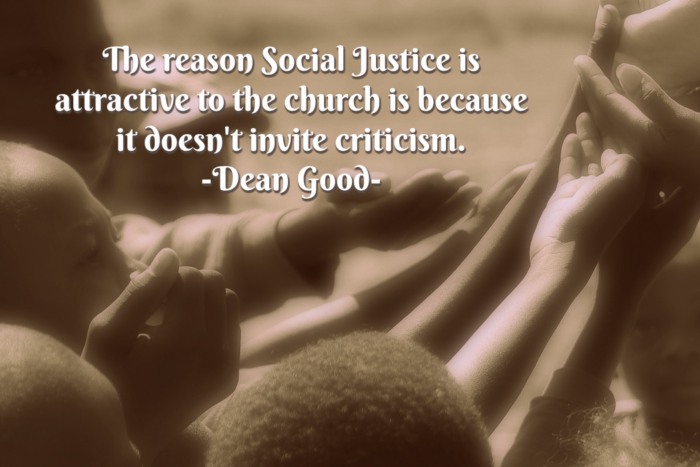Are You More Like Saul or David?
It is springtime in our area. The dull, barren ground is turning different shades of green as grasses and weeds come back to life after being dormant all winter. The trees are pushing forth leaves and blooms. The world is coming alive again with vibrant colors. It is one of my favorite times of year.
What do the plants need to grow?
If you had any science in school, then you probably already know this. They need water, and sunshine, and warm temperatures. They need the nutrients that are in the soil and they need to be disease-free so that they are able to take up those nutrients and process them correctly.
Just as a plant needs certain things to grow, so, too, do we Christians.
I have been reading about David and Saul in I Samuel over the past few weeks and I was so struck by the contrast of these two men. David was called a “man after God’s own heart” (Acts 13:22) while King Saul was called rebellious, stubborn, and was eventually rejected as Israel’s King (I Samuel 15:23).
Both men committed grave sins. Both men made some really bad choices. We know this because of the events recounted in scripture. One was not a greater sinner than the other–so why was one called “a man after God’s own heart” while the other one was rejected? What made the difference?
I believe there are four very critical differences and that these differences determined their relationship with God–
1) When confronted, David was repentant while Saul was not. In 2 Samuel 12:13, Nathan confronts David about his sin. Without hesitation, David admits his sin and offers no excuses. Compare that to I Samuel 13:11-14, where Samuel confronts Saul about offering a burnt sacrifice himself instead of waiting for Samuel and going through the proper channels. Here we read no less than three excuses and not even one admission of wrong-doing.
In order for growth, transformation, and change to take place, a heart and mind willing to admit wrongdoing and then to repent of that wrongdoing is critical. Excuses will just keep one mired in sin. Like quicksand, it keeps us floundering and hopeless and stuck because we want to blame everyone else for our problems instead of taking ownership of our sins and then working along with the Holy Spirit to eradicate the sin.
2) David is teachable, while Saul is proud. We can see this as we read the Psalms and also as we read the accounts of both David and Saul. This comes across so clearly. A proud heart is never a teachable heart. When one is proud, a know-it-all attitude often comes with it. When there is questioning, it is often done with a demanding spirit–as if they deserve to be told the answer. True humility leads to a teachable heart and this is what we saw in David’s life, both in his writings and in the accounts of his life. In contrast, Saul was a proud man–seeking to kill the man who threatened his kingship and contacting a medium (and going completely against God’s command) when searching for an answer.
The difference is so striking and, honestly, we can see this played out over and over all around us. Pride yields stagnancy, strife, and broken relationships, while a teachable spirit yields vibrant growth and loving, healthy relationships.
3) David was willing to wait on the Lord, while Saul tried to manipulate events to his advantage. David had to wait a very long time to become King. David shows us his heart in Psalm 130:5-6–
I wait for the Lord, my soul waits,
And in His word I do hope.
6 My soul waits for the Lord
More than those who watch for the morning—
Yes, more than those who watch for the morning.
But we find Saul trying to take matters into his own hands. He clearly did not trust the Lord. Again, the most obvious examples of this are his efforts to eliminate David in order to preserve his kingdom and his sin in contacting a witch to discern what to do. Instead of waiting on the Lord, he jumped ahead and tried to fix things himself.
And what a difference we see! David, anointed as a young man, finally becomes King of Israel at the age of thirty (2 Samuel 5:4). In contrast, three of Saul’s sons are killed and Saul is mortally wounded and ends up committing suicide (I Samuel 31:1-6).
We all have a choice. We can trust in the Lord and wait on Him. Or we can jump ahead and try to manipulate circumstances and fix them to our advantage. One choice leads the believer to vigorous growth and the other leads to spiritual murkiness.
4) David upheld and was dedicated to God’s Word while Saul was more interested in his own opinions and experiences. Psalm 19:7-11 shows us clearly how David felt about God’s Word–
The law of the Lord is perfect, [e]converting the soul;
The testimony of the Lord is sure, making wise the simple;
8 The statutes of the Lord are right, rejoicing the heart;
The commandment of the Lord is pure, enlightening the eyes;
9 The fear of the Lord is clean, enduring forever;
The judgments of the Lord are true and righteous altogether.
10 More to be desired are they than gold,
Yea, than much fine gold;
Sweeter also than honey and the [f]honeycomb.
11 Moreover by them Your servant is warned,
And in keeping them there is great reward.
He was passionate about the Word of God and this Psalm has inspired, comforted, and reminded many Christians through the ages of the importance of it.
Saul, on the other hand, was more interested in himself. As this site puts it–
“In essence, Saul’s root character flaw is self-exaltation and self-deception. He thinks he knows better than everyone else, including God. The biggest tragedy is that he’s not even aware of it. The story shows he is completely blind to his arrogance and always believes he’s in the right.” (The Bible Project: King Saul and Self-Deception)
Growth is always greatly hindered when we care more about our own opinions and experiences than we do about the Word. Again, we can see this play out over and over again in the “Christian” culture around us. How often are people much more interested in their own version of “right” and “fair” than in what the Bible teaches? Even going so far as to ignoring proper hermeneutics and twisting scripture to make it say what they want? And, yet, this doesn’t lead to any growth, but rather to a deceived, self-absorbed believer at best or to an unsaved follower of a false religion wrongly called “Christianity” at worst.
________________________________________
Repentant.
Teachable.
Trusting in and Waiting Upon the Lord.
Viewing God’s Word as my Anchor and Guide for Life.
These four things provide a great environment for spiritual growth! The honest question we all must ask ourselves is this: How do I measure up? Are these four things evident in my life?
We may be doing pretty good at one or two of them and struggle with the others. Or we may be doing “okay” at all of them, but could do so much better. Or we may have never even thought about this and have no idea.
If we are really brave, we will ask our spouse or someone else that is close to us. Do they view us as repentant? As teachable? Do we exhibit a willingness to wait on the Lord? Do we uphold God’s Word?
Sometimes this can be very painfully eye-opening but it will be so worth it because it will get us moving in the right direction.
So let’s examine ourselves in light of David and Saul. Which one are we more like?










